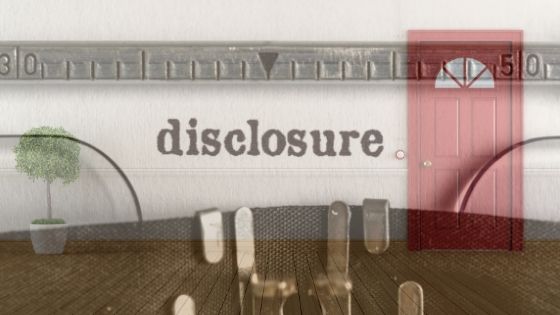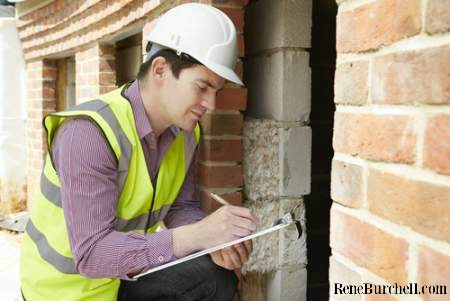Seller disclosure requires a home seller to tell you about any defects that could hurt a home’s value. These could be septic problems, a leaky basement, roof leaks, mold or even a damaged foundation.
The seller should list any of these problems on a disclosure form. As a seller you’re required to disclose any known defects about your property. If you knowingly mislead or misrepresent a home to a buyer, you’d be at risk of getting sued for fraud.
Disclosure is simply revealing to buyers everything that you know about your property. It could also be disclosing facts about the home in which nothing is wrong.
This is highly beneficial because it takes the responsibility off of you and onto the buyer. By filling out your sellers disclosure form honestly and to the best of your knowledge, you shouldn’t have any worries.
Here are 5 essential disclosure facts a seller should know
1. TREC
Sellers are to use the disclosure form by the Texas Real Estate Commission. Seller disclosures are only mandated for single-family buildings.
Multi-Family homes like duplexes and fourplexes are not required to submit a seller’s disclosure. Additionally, foreclosed homes normally do not have seller disclosures.
The (TAR)Texas Association of Realtors disclosure is also a lot more detailed and commonly used.

2. Defects
Patent or visible defects do not need to be disclosed. For example, if you can see a defect during a typical home inspection, it does not need to be disclosed by a seller. This can include a crack in the window, mirror, kitchen counter, or a stain under the bed.

If a seller knows about a material latent defect and does not disclose it, a buyer can sue the seller even after closing. Examples include water damages that have not been repaired, mold behind walls, or foundation problems.
If a buyer can demonstrate even after closing that the seller must have known about the issue, they can be successful in taking legal action.
3. Psychological Stigmas
Psychological stigmas do not have to be disclosed. Although the law is evolving, sellers do not have to disclose whether there has been a homicide or suicide on the property or adjoining property. If a buyer inquires about an event, you are required to tell the truth.

By doing so, you’d gain the trust of the buyers. Matters like crime and death will likely be important to potential buyers. Therefore, it’s essential for the seller to do proper research and add a clause in the offer responding to any stigmas on the property. The clause should warrant truthful statements about the status of the home.
4. Integrity
Buyers are more forgiven of a property’s flaws if they are notified about them upfront. A buyer isn’t required by law to sign the seller’s disclosure notice. However, relocation companies with the title to a property are still required to fill out the sellers disclosure notice.

They can attach the notice to any inspection reports concerning the property. Sellers are not required to conduct independent property inspections or hire professionals to verify the condition of the home.
5. Past Problems
Disclosing previous repair work and work that may need continuous maintenance is important. When selling homes you want to eliminate the possibilities of a buyer contacting you because of an issue.
Repairs that may affect the overall value of the home should be disclosed. If it has fire damage, documents about the fire should be disclosed. Include all repairs that were made along with police reports, and insurance claims.

Disclose to buyers if there were major repair problems in the past like roof and foundation complications. Previous termite damage that was repaired or controlled may have an overall impact on the property. However, if there were only minor issues that may not occur again like leaks under the sink, then it isn’t something to worry about
Recommendations
Selling a house may be expensive if you’re opting to get inspections beforehand. Although it’s not obligatory, it is helpful and will prevent problems in the long run.
However, if you don’t have all the information, it’s fine and you will not be penalized. Always remember to disclose important information about your property if it could affect the value of it.
Disclosure is something supplied to the buyer by the seller documenting their understanding of the property. Therefore, you are not responsible to disclose any defects that you have no knowledge of.
By reading these helpful facts, you should now have a good understanding of seller disclosure. It’s very simple, but may still be confusing, especially for a new seller. To simplify, you collect all the data on the house you’re selling.
All the repairs, damages, leaks, foundation problems, even if they’re no problems, it should be disclosed. Buying a new house can be an unbelievably exciting and simultaneously stressful circumstance. So buyers put their trust in the sellers to leave them worry-free. Once you make a sale, you’ll feel great knowing that you did both, sold a house and kept your integrity.
Have Questions? Ask Rene!




